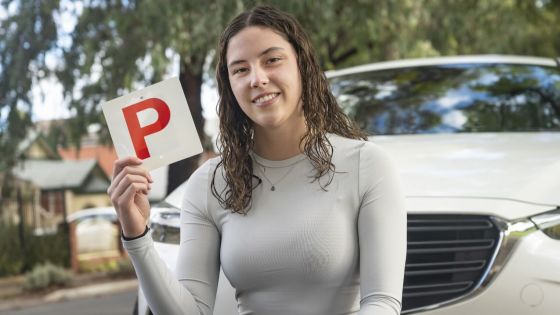
- About Us
- Careers
- News
- Contact Us
Major reform of driver training laws to raise standards, cut costs and improve driver skills

Friday, 30 August 2024
The State Government has introduced a Bill into Parliament to drive major reform of driver training laws to address corruption and sexually predatory behaviour in the sector, improve the skills of motorists and reduce costs for learners.
Under the proposed reforms, practical driving tests for Class C (car) licences will be undertaken by government examiners rather than private operators.
Driver training for Class C will continue to be delivered by private operators who will be required to comply with new, higher industry standards.
Under the proposed suite of legislative reforms:
- Competency Based Training Assessment (the logbook method) will have a new format, with learner drivers required to pass a practical driving test with a government examiner to obtain their provisional licence.
- Driving instructors will be required to demonstrate good character, provide evidence of medical fitness and will be subject to enhanced practical driving and theory tests to enter the industry and maintain accreditation.
- Industry standards of behaviour will be formalised into a Code of Practice with sanctions for breaches.
- Mandatory cameras and GPS will be required to be installed in all driver training vehicles, providing protection for both the trainer and student.
- Instructors will be required to increase transparency by disclosing information in writing about their payments, fees and services.
- Additional learning resources and consumer information will be developed to help better inform and prepare parents, industry members and the learner driver.
Close to 50,000 practical driving tests occur in South Australia each year.
A survey showed the median price charged for vehicle on-road testing was $319, with most businesses charging in excess of $300 – and some charging $400 or more.
Under the proposed reform the cost of a driving test would change to a set standardised fee of $240.
Once the legislation is passed it is anticipated there will be a two-year transition period, during which time there will be engagement with the industry. Authorised Examiners will also be able to continue testing and apply, should they wish, for a Government Examiner position.
It is anticipated around 40 Government Examiner roles will be required across the state to undertake practical driving tests for Class C licences.
The significant reforms are in response to a Department for Infrastructure and Transport review into the industry that highlighted the need to strengthen industry standards and address issues of inappropriate and criminal behaviour. Over the past eight years a total of 137 disciplinary actions have been undertaken involving 125 people – representing more than 20 per cent of industry members.
This includes 12 Authorised Examiners/driving instructors who have been convicted on multiple counts of charges such as sexual offences, bribery, fraud and corruption.
A May 2022 ICAC report underlined this, saying current controls to prevent corruption in the driver licensing industry were “less than adequate”. The Government has committed to drive reform to strengthen industry standards, enhance accountability and improve safety outcomes for new drivers.
There are currently around 609 registered Motor Driving Instructors in South Australia, and of those 266 are also Authorised Examiners.
Currently, only South Australia and the Northern Territory have fully outsourced both the driver training and examination functions.
Driver training and examination for heavy vehicles would remain with the private sector, with the addition of cameras and GPS tracking and the introduction of a mandatory Code of Practice.